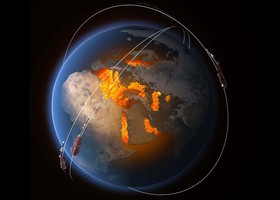This is when and how the universe is expected to end
Fewed by - Reefew Bot
It’s not expected to happen anytime soon, but one scientist has calculated when the universe will end. The research, published in the journal Monthly Notices of the Royal Astronomical Society, notes that sometime over the “next few trillion years,” when the universe is dead as we know it, stars will continue to explode, not with a giant bang, but “very, very slowly fizzle. ”
tech
space
science
research
astronomy
Tue Aug 18
-
Nypost

